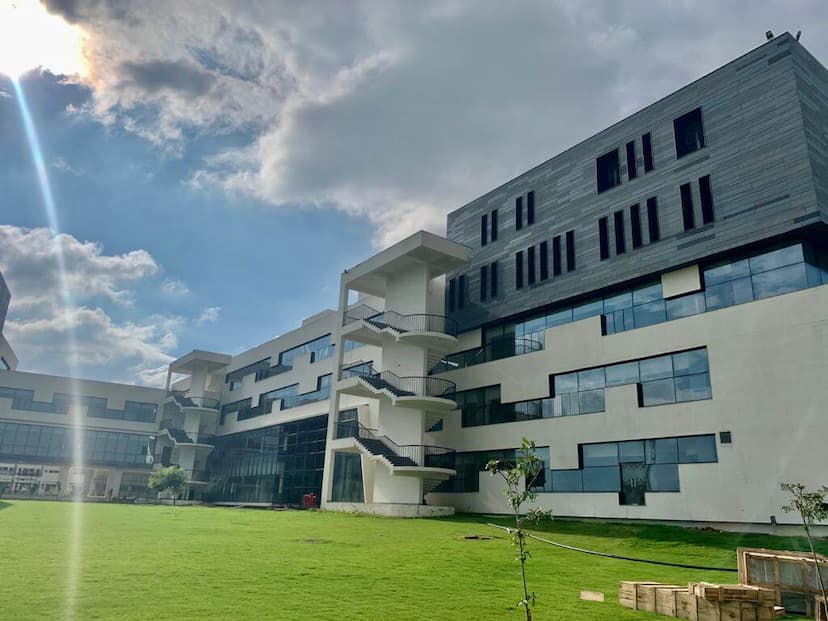ICAR Curriculum Reforms: Shaping Agriculture Graduates into Entrepreneurs

The curricular reforms by ICAR aimed at shaping agriculture education graduates into employers, not seekers.
Skill-based learning and employability are two aspects of Indian agricultural education that have come center stage during the overhaul of agriculture education reformed by the curriculum reform committee of the Indian Council of Agriculture Research.

ICAR has launched Skill Enhancement Courses
As part of the decisions taken, ICAR has launched skill enhancement courses and made internships compulsory along with UG certification, UG diploma, and degree requirements in its Sixth Deans’ Committee Report released last month.
ICAR is trying to “improve employability” with practical knowledge besides instilling skills for entrepreneurship by including choice-based skill enhancement courses in the UG programs and internships in agriculture education.
“The restructured undergraduate curricula are so designed that it would enable the student to pursue entrepreneurship as a career path through several modes of skill development programs, such as in-plant training, internship, projects, and rural agricultural work experience,” says the report’s preface.
Through these curriculum reforms, ICAR aims to enable graduates to “become a job provider rather than a job seeker by establishing enterprises in concerned fields.” ICAR states that the undergraduate curricula restructured are “designed to enable the students to take up entrepreneurship as a career path.”

Agriculture Syllabus: Skill enhancement
The areas of skill enhancement shall be chosen from a range of modules offered by their parent institutions. The agriculture colleges or universities will build their capabilities by offering up to 12 credits of skill enhancement courses.
Foundation courses, introductory and skills enhancement courses, or training in the selected area will be part of the programmes undertaken in the first and second years.
All of the 13 UG programmes will be undertaken by first-year students. The curriculum will have foundation courses, introductory and skills enhancement courses, training in the selected area, and ability enhancement courses to prepare them for employment or entrepreneurship.

Students in the second year can choose the following skill enhancement courses:
- Students will also go through 10 weeks of internship for exit programs after the first or second year. Students can choose elective courses and advanced skill enhancement courses in the fourth year through projects and internships.
- “For this institution and society, students will acquire advanced knowledge and skill in different areas to meet the higher order requirements of the society and industry as well as other prospective employers,” the report said.
- The committee has recommended a list of skill enhancement courses for each stream, but agricultural universities can do so.
- “The evaluation of the skill enhancement programs will be per the evaluation criteria of courses with only practical,” said the report.
Also Read: XTIC to host great extended reality summit
Agriculture Jobs: Internship
ICAR has also provided exit after completion of the first year to award a UG-Certificate and after completion of the second year to award a UG-Diploma, but only after completing a 10-week internship in both cases.
“The internship at the time of exit for the UG-Certificate and UG-Diploma is meant to enhance skills further in the selected area or subject, ” said the report.

For the internship, ICAR has requested universities to preferably make arrangements beyond the parent institution at an assigned organization, industry, research institution, or project with a progressive farmer or agri enterprise. The students will undertake industry-oriented internships under the READY scheme in the fourth year.
Conclusion:
Therefore, ICAR’s curriculum reforms have witnessed a radical change in agriculture education, placing it more on practical/skill-based learning. Choice-based courses, mandatory internships, and multiple exit points with certificates will focus on the Entrepreneurial skills of the students. Such curriculum changes will shape agriculture graduates as job creators by transforming them into innovators and facilitating sustainable growth in agriculture. These initiatives of the ICAR ensure that students are industry-ready, empowering them to lead enterprises towards rural development and food security.

Vani Jha is a creative content writer with over 2 years of experience in producing engaging, informative, and well-researched content across various domains. Her expertise lies in SEO, research, editing, and content and copywriting. With a proven track record in enhancing online presence and audience engagement, Vani excels in crafting compelling articles, blogs, and other written materials.











